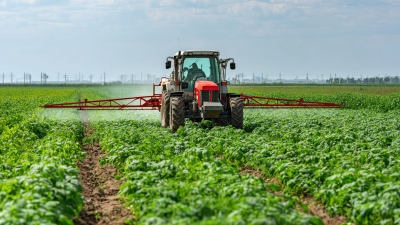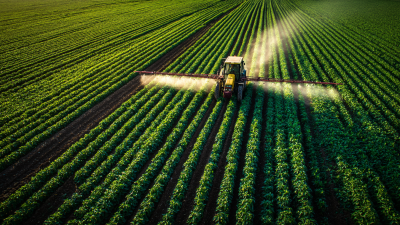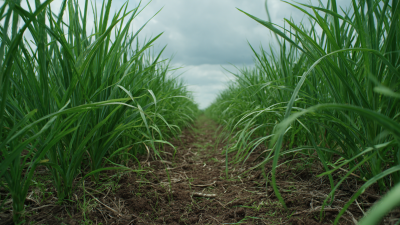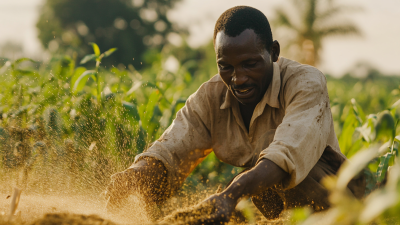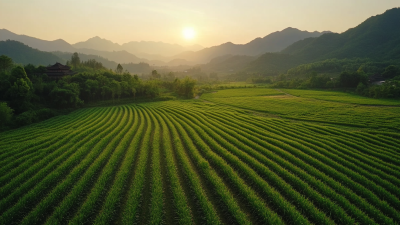 0551-68500918
0551-68500918 





The global Agrochemical Market is really going through a big shift these days. More and more, farmers and consumers alike are focusing onsustainable farming practices—it's become a pretty big deal. If you look at the latest report from MarketsandMarkets, they’re saying the worldwide agrochemicals market could hit around $300 billion by 2025. A lot of this growth is driven by a rising need for food security and a push for more eco-friendly farming solutions. Right there in the mix is Innovation Meiland (Hefei) Co., LTD., which is really leading the charge. They're all about researching and developing new pesticides, formulations, and processes that match these changing demands. Based in Hefei, China, Meiland Stock is super dedicated to creating innovative options that not only boost crop yields but also keep our environment safe. In this blog, I’ll walk you through some of the latest and greatest alternatives in agrochemicals—comparing different strategies and approaches that could help us move toward a more sustainable future in farming.
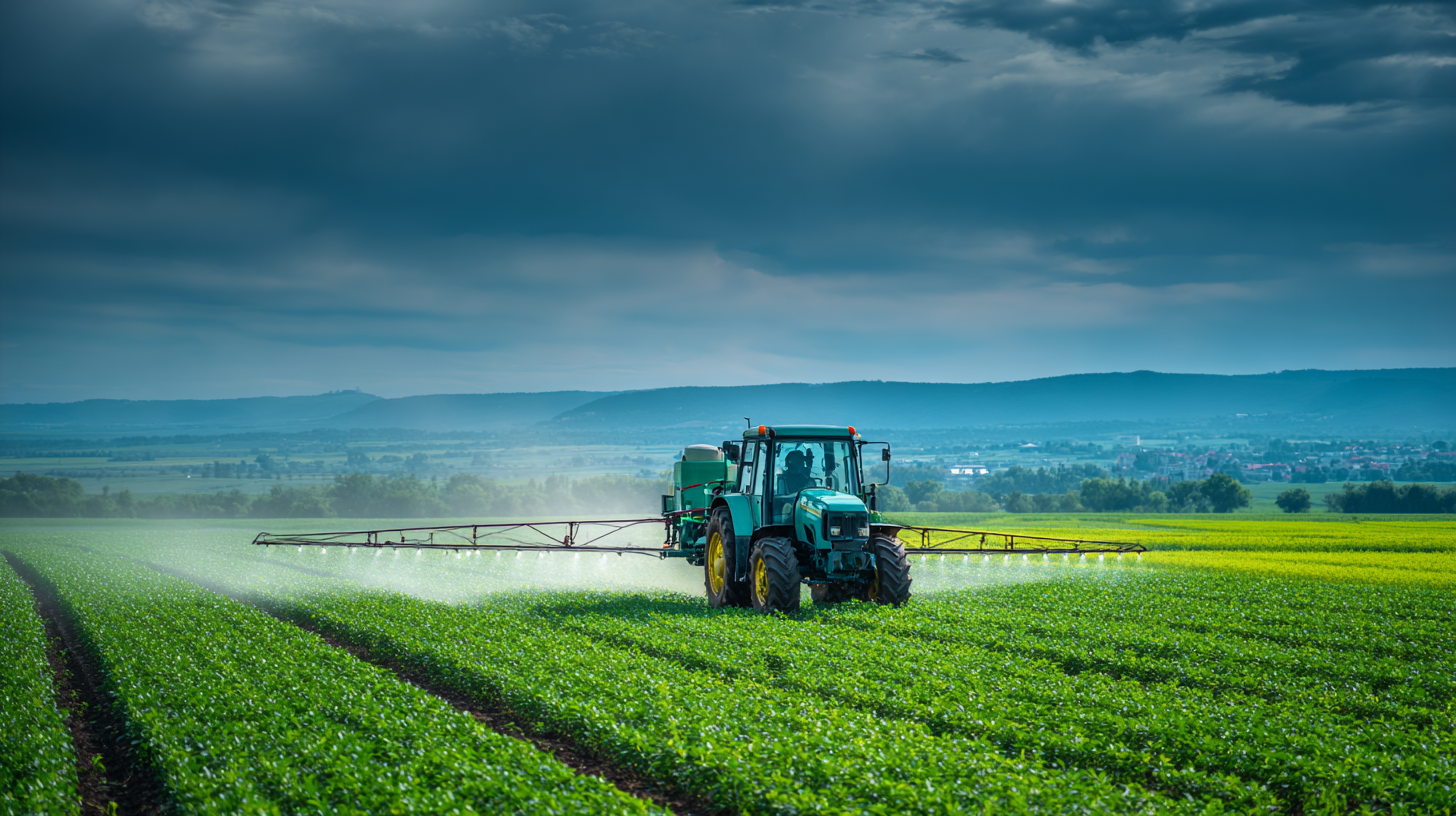
You know, the global agrochemical scene is really shifting right now. There's a big push toward more innovative options that support sustainable farming—all quite exciting! Right now, we're using over 2 million tons of pesticides every year, which is a ton—literally—and it’s clear we need to find better, more eco-friendly solutions. Recent research shows that biopesticides, which are made from natural stuff, could cut down Chemical Pesticide use by anywhere from 30% to 50%. That’s pretty huge for farmers who want to keep things sustainable without sacrificing their crops and yields.
Now, companies like Innovation Meiland (Hefei) Co., LTD. are really leading the charge here. They’re working on developing new pesticides and formulations that are more in tune with eco-friendly practices. By pouring resources into R&D, Meiland is all about making solutions that not only protect crops but also boost soil health and help preserve biodiversity. It’s these kinds of efforts that show we can have effective agrochemicals that are also kind to the environment. Moving forward, embracing these innovative, greener alternatives will be key if we want to create a more sustainable future for farming all around the world.
Lately, the agricultural world has been under pretty heavy pressure to boost crop yields without really hurting the environment. And honestly, one of the coolest and most promising solutions out there right now is biotechnology. It’s really changing the game by helping farmers cut down on traditional chemicals like Pesticides And Fertilizers. Thanks to things like genetic engineering, new plant breeding methods, and bio-based tech, farmers can now grow crops that are tougher against pests and diseases, and they also use nutrients more efficiently. This not only means better harvests but also less damage to our planet overall.
On the global front, the market for molecular plant agriculture is expected to skyrocket—from about $275 million in 2025 to over $4.3 billion by 2033. Crazy, right? But it really makes sense given today’s environment. People and regulators are more focused than ever on food safety and protecting the planet, so farmers and companies are pouring tons of resources into biotech innovations. These advancements aren’t just about making sure we have enough food; they’re also paving the way for farming that’s more sustainable—more in tune with saving resources and keeping our environment healthy.
Basically, it’s an exciting time for agriculture, and biotech seems to be leading the charge into a more sustainable future.
| Innovation Type | Biotechnology Application | Impact on Crop Yield (%) | Reduction in Agrochemical Use (%) | Sustainability Benefit |
|---|---|---|---|---|
| Gene Editing | CRISPR-Cas9 to enhance pest resistance | 20% | 30% | Improved ecosystem health |
| Biopesticides | Microbial pesticides from natural sources | 15% | 50% | Reduced chemical runoff |
| Plant Biotechnology | Transgenic crops for improved drought resistance | 25% | 20% | Conservation of water resources |
| Microbial Inoculants | Rhizobacteria to promote plant growth | 18% | 40% | Enhanced soil health |
| Integrated Pest Management | Combining biotechnology and traditional methods | 22% | 35% | Sustainable pest control |
The agrochemical world is really going through some big changes lately. Farmers and folks involved in agriculture are starting to see just how beneficial biopesticides and biostimulants can be. These innovative solutions don’t just tackle pests and diseases effectively—they also align better with sustainable farming practices. You know, people are more aware now about how synthetic chemicals can impact the environment and our health, which is driving this shift toward more natural options. Biopesticides, made from natural ingredients, target pests more precisely, which means they’re less likely to harm other organisms and help protect biodiversity.
At the same time, biostimulants are doing a lot of good—helping plants grow better, absorb nutrients more efficiently, and become tougher against environmental stresses. By using helpful microorganisms and natural substances, these products contribute to healthier soils and crops, really pushing agriculture toward a more sustainable future. And with more consumers craving organic and sustainably grown foods, the demand for new, eco-friendly agrochemical solutions has never been higher. All in all, the industry is shifting its focus toward these greener options, totally in line with the trend toward farming practices that value ecological balance and longevity.
This chart displays the growth trends in the global market for biopesticides and biostimulants from 2020 to 2025, highlighting the shift towards innovative alternatives in the agrochemical market.
Trying to grow food sustainably? Well, integrating precision agriculture tech is pretty much essential these days if you want to manage inputs more effectively. By leveraging data and insights, farmers can decide the perfect timing and amount of pesticide use — which means less waste and healthier crops all around. I read somewhere that the precision ag market is expected to hit around $12.9 billion by 2027, showing how everyone’s really leaning towards smarter, more eco-friendly farming methods.
At Innovation Meiland (Hefei) Co., LTD., we’re actually leading the way with some pretty cool pesticide products and formulations that match these new tech trends. Our research is all about developing solutions that not only meet the needs of modern farmers but also help take care of the environment. Thanks to tools like drones for mapping fields and IoT sensors to check soil health, farmers can cut down on chemicals while still boosting their yields.
**Tip:** Using precision ag tech can cut pesticide use by roughly 15-25%, which not only saves costs but also helps reduce environmental impact. Plus, tailoring formulations to specific crops can really make a difference—making sure the right product gets used at the right moment, leading to better results for everyone, including ecosystems.
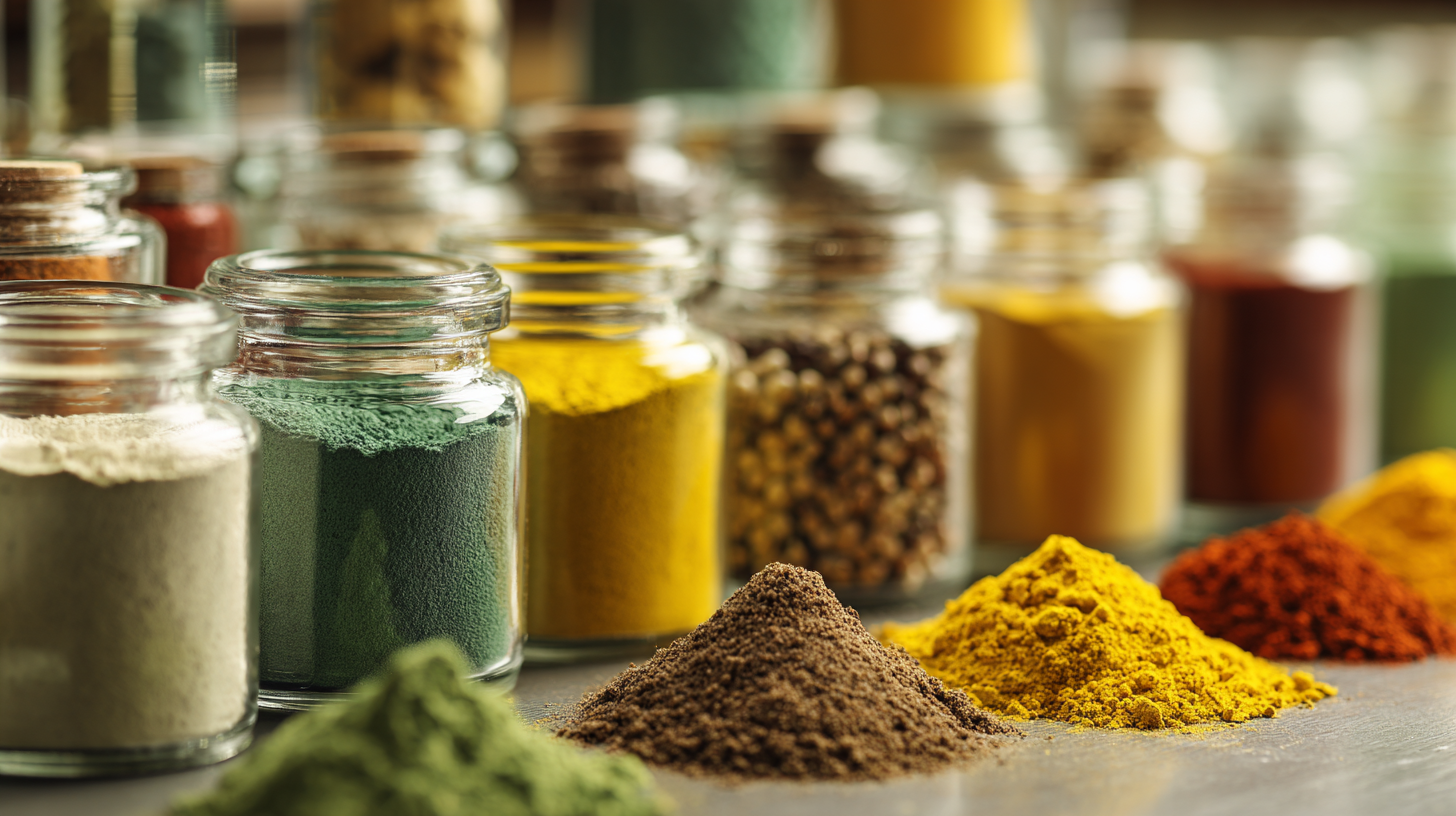
When we talk about the benefits of sustainable agrochemical solutions, it’s not just about helping individual farmers — it’s about protecting entire ecosystems too. These days, agricultural policies are really pushing for ways to cut down on environmental damage, and that’s making new, innovative approaches in the agrochemical world more important than ever. Take the UK Pesticides National Action Plan 2025, for example — it’s all about managing pesticide use smarter and more responsibly, with a clear goal for a sustainable future. By embracing these policies, farmers aren’t just dodging risks tied to traditional pesticides; they’re also boosting soil health and supporting biodiversity, which can lead to some pretty solid economic benefits in the long run.
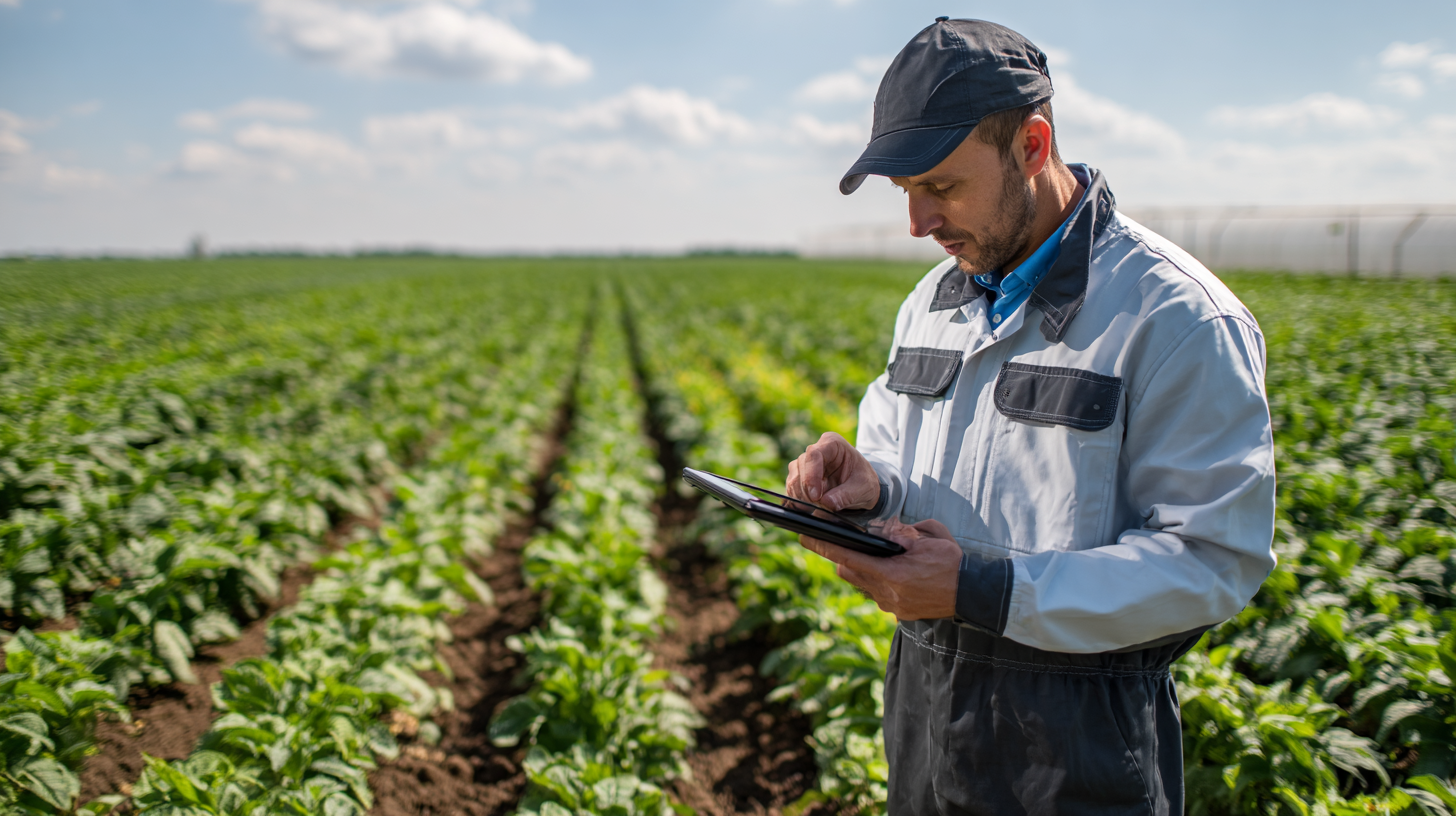
Plus, there’s been a real buzz around biopesticides lately — these natural pest control options are actually pretty promising. Countries facing specific agricultural challenges are already trying out these eco-friendly solutions, and it’s helping them protect their crops better while keeping their environmental footprints in check. This shift shows that sustainable farming doesn’t have to come at the expense of profit — in fact, with the right practices, the two can go hand in hand. As the global agrochemical market keeps evolving, farmers now have more tools than ever to boost their yields while also respecting the environment. It’s all part of a bigger move toward making agriculture more sustainable and balanced in the long run.
Lately, we've seen quite a shift in how regulations are shaping the agrochemical world. It’s a big deal because it’s really pushing the industry toward more eco-friendly solutions. Basically, these rules are aimed at cutting down the environmental harm caused by traditional chemicals and encouraging more sustainable farming practices. As governments around the globe tighten up restrictions on harmful substances, farmers are feeling more and more motivated to try out alternatives that work just as well but are safer for our planet.
This whole move towards eco-friendly agrochemicals isn’t just about meeting rules, though. It’s also a sign that consumer tastes are changing. More people want organic or responsibly sourced produce, which puts pressure on companies to innovate. That’s how we’re seeing new stuff like biopesticides and natural fertilizers come into play—products that fit the regulatory standards and also help improve soil health and make crops more resilient. The collaboration between regulators, scientists, and farmers is super important here. It helps ensure that adopting these greener options isn’t just a pipe dream, but something that really works and benefits everyone involved.
: Biotechnology reduces reliance on traditional agrochemicals by enabling genetic engineering and plant breeding techniques that help crops withstand pests and diseases while utilizing nutrients efficiently.
By promoting the cultivation of more resilient crops, biotechnology enhances crop yields and minimizes the ecological footprint of farming practices.
The market is expected to expand from $275.61 million in 2025 to approximately $4.39 billion by 2033 due to increasing demand for sustainable farming alternatives.
Stricter regulations on harmful substances have encouraged the development and adoption of eco-friendly agrochemical innovations, pushing farmers towards safer and more sustainable practices.
There is a growing demand for organic and responsibly sourced agricultural products, leading companies to innovate in developing sustainable alternatives.
Products such as biopesticides and natural fertilizers have emerged, aligning with regulatory standards and enhancing soil health and crop resilience.
Collaboration among regulatory bodies, researchers, and agricultural producers is essential to ensure the transition to greener alternatives is feasible and beneficial for all stakeholders.
Less reliance on traditional chemicals leads to a reduced environmental impact, promoting ecological balance and healthier ecosystems within agricultural practices.
By enabling the development of crops that are more productive and resilient, biotechnology plays a critical role in enhancing food security and ensuring sufficient food supply.
Sustainable agricultural practices driven by biotechnology aim to preserve resources and minimize waste, ensuring a balance between productivity and environmental health.
The blog titled "Exploring Innovative Alternatives in the Global Agrochemical Market for Sustainable Farming" really dives into how new, innovative agrochemical options could totally change the game for sustainable farming. It talks a lot about how biotech is playing a huge role — helping farmers cut down on traditional agrochemicals while still boosting crop yields. You’ll also notice it points out a big shift happening in the market, with more folks leaning towards biopesticides and biostimulants. Oh, and the piece highlights how using things like precision agriculture tech can really help manage inputs better, making everything more sustainable.
On top of that, the economic perks for farmers and the planet are pretty significant, especially now with regulations leaning more and more toward eco-friendly solutions. One company making waves in this space is Innovation Meiland (Hefei) Co., LTD. They’re all about pushing forward with new pesticide research and developing better formulations — a solid step towards a greener, more sustainable future in farming.
